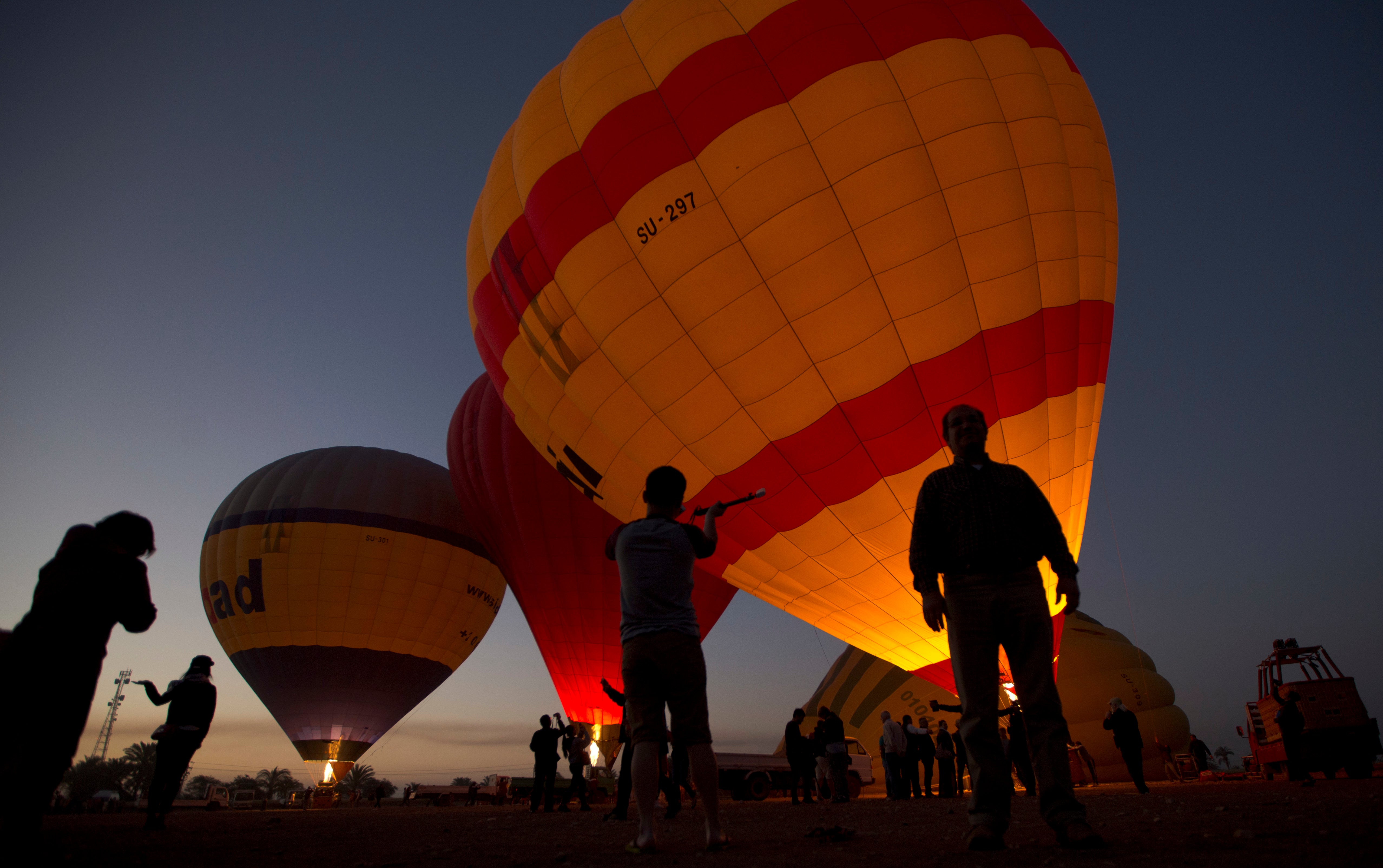Egypt resumes hot air ballooning over Luxor after incident
Egypt has resumed hot air ballooning over the ancient city of Luxor following a two-day hiatus after two tourists were lightly injured during a ride

Your support helps us to tell the story
From reproductive rights to climate change to Big Tech, The Independent is on the ground when the story is developing. Whether it's investigating the financials of Elon Musk's pro-Trump PAC or producing our latest documentary, 'The A Word', which shines a light on the American women fighting for reproductive rights, we know how important it is to parse out the facts from the messaging.
At such a critical moment in US history, we need reporters on the ground. Your donation allows us to keep sending journalists to speak to both sides of the story.
The Independent is trusted by Americans across the entire political spectrum. And unlike many other quality news outlets, we choose not to lock Americans out of our reporting and analysis with paywalls. We believe quality journalism should be available to everyone, paid for by those who can afford it.
Your support makes all the difference.Egyptian authorities on Wednesday resumed hot air ballooning over the ancient city of Luxor following a two-day hiatus after two tourists were lightly injured during a ride.
A hot air balloon with 28 tourists drifted off course Monday because of a change in the direction and speed of winds. The balloon was at an altitude of 60 meters (197 feet) when it veered off course.
Before landing in an open area, the balloon slightly collided with another one.
The Ministry of Civil Aviation said it decided to resume the rides after reviewing “all safety measures and steps taken” to operate the popular flights.
It said the two firms operating the balloons involved in Monday's incident were still suspended until investigations completed.
Hot air ballooning over Luxor, 510 kilometers (320 miles) south of Cairo, offers tourists spectacular views of ancient temples in the city.
However, ballooning accidents are not uncommon. A hot air balloon crash near Luxor in 2013 killed 19 tourists, likely the deadliest such accident on record.
In 2009, 16 tourists were injured when their balloon struck a cellphone transmission tower. A year earlier, seven tourists were injured in a similar incident.